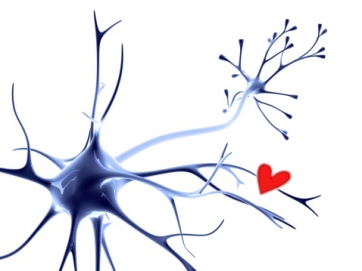

Aj! Det gick så fort, och nu är livet helt annorlunda!
Hjärnskakning, även känd som lätt traumatisk hjärnskada, kan leda till en rad symtom. Exempel är huvudvärk, yrsel, ljud- och ljuskänslighet, svårigheter med fysisk ansträngning och träning, illamående och kräkning, mental uttröttbarhet (hjärntrötthet), nedsatt balans, ostadighet, lättirritabilitet, nedstämdhet, nedsatta kognitiva funktioner som tex koncentration och minne, känsla av förvirring, klumpigt rörelsemönster, förändringar i humör, beteende eller personlighet. Dessa symtom kan vara långvariga och påverka individens dagliga liv och aktiviteter.
Specialiserad rehab som hjälper
Som neuropsykolog erbjuder man specialiserad hjärnskadeinriktad rehabilitering, som inkluderar olika sorters psykologisk behandling, strategier, tekniker och stöd för hantering av de förändringar som har uppstått efter skadan och för minskning av symptom, förbättring av psykisk funktion och mindre depression.
Ett observandum för neuropsykolog är den sk ”katastrofreaktionen” som kan komma när det akuta är över, skadan inte längre syns utanpå, man blir utskriven från vårdenheten och skall få ihop livet på hemmaplan – men märker att det inte går.
Här finns mycket att göra för psykologen.
Dessutom kan neuropsykolog erbjuda stöd och utbildning till patientens anhöriga, vilket kan vara avgörande för patientens återhämtning. Se gärna avsnittet om anhöriga i huvudmenyn.
Skräddarsydd behandling
Varje individs rehabiliteringsprocess är unik och anpassas helt efter individens specifika behov och mål. Neuropsykolog kan utgöra ”spindeln i nätet”, lägga upp en plan och samordna insatser från flera olika instanser.

Ouch! It happened so quickly, and now life is completely different!
Concussion, also known as mild traumatic brain injury, can lead to a range of symptoms. Examples are headaches, dizziness, sensitivity to sound and light, difficulties with physical exertion and exercise, nausea and vomiting, mental fatigue (brain fatigue), impaired balance, instability, irritability, depression, impaired cognitive functions such as concentration and memory, feelings of confusion, clumsy movement patterns, changes in mood, behavior or personality. These symptoms can be long-lasting and affect the individual’s daily life and activities.
Specialized rehab that helps
A neuropsychologist offers specialized brain injury-oriented rehabilitation, which includes various types of psychological treatment, strategies, techniques, and support for managing the changes that have occurred after the injury and for reducing symptoms, improving mental function, and less depression.
Here is the English translation of your text:
Focus for the neuropsychologist is the so-called “catastrophic reaction” that can occur when the acute phase is over, the injury no longer is visible externally, one is discharged from the care unit and is supposed to put life together at home – but nothing works as before. Here is a task for the neuropsychologist to tackle.
In addition, a neuropsychologist offers support and education to the patient’s relatives / network, which can be crucial for the patient’s recovery. Please see the section on relatives in the main menu.
Tailored treatment
Each individual’s rehabilitation process is unique and is completely adapted to the individual’s specific needs and goals. The neuropsychologist can be the “spider in the web”, setting up a plan and coordinating efforts from several different caregivers.

